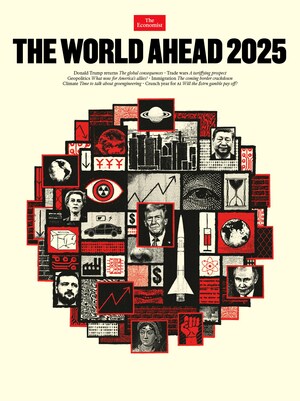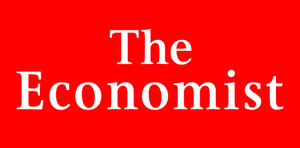LONDON, July 23, 2020 /PRNewswire/ -- "The Midwest", a new Special Report from The Economist, online today at economist.com and published in the July 25th print edition, examines the long-term trends of the US region of twelve states that almost single-handedly delivered the 2016 US election to Donald Trump.
Author of the report, Midwest correspondent for The Economist Adam Roberts, compares the region once dominated by agriculture, then by logistics and heavy manufacturing, to former industrial regions in Europe and Japan. The Midwest with a population as large as Britain or France and a combined GDP the size of Germany, is undergoing a great transition and is attempting to reinvent itself economically.
The report states that the driving force of this change is from its cities. Minneapolis, Madison, Columbus (Ohio), Chicago, Pittsburgh, Indianapolis and Grand Rapids (Michigan) have risen again thanks to success in medical and healthcare, finance, tech and biotech, tourism, sport and creative industries.
Mr Roberts cautions that not everywhere in the Midwest is doing well. Those that remain mired—like Gary, Indiana, Cairo, Illinois, parts of Detroit, Cleveland or Flint, Michigan—fail to overcome problems like racial segregation, low levels of education, population loss and high crime. The protests of 2020 started as a result of George Floyd's murder in Minneapolis, Minnesota.
The report looks at how some Midwestern cities will cope given coronavirus, racial inequality, fiscal strain and a wider economic slump. Mr Roberts argues that it will depend on leadership, including from philanthropists, to create the most open climate for growth, immigration and diverse populations. In some places he thinks it means a shift in values from reliance on one big old industry. Cooperation between states, and between cities, can help. Crucially it depends on the power of education and especially universities—the Midwest is home to some of the world's most successful—for example in unleashing medical companies in Minneapolis and Madison.
Finally, Mr Roberts argues that infrastructure in the Midwest is vital. Those cities with big airports, plus good road and rail connections, have advantages. Some people are promoting a hyperloop, to stitch together the major cities of the Midwest. It will require a new way of seeing the great outdoors in a time of climate change. From farms to vineyards to tourist spots, the rural Midwest will only become resilient by learning to prosper from growth in the region's cities. If it succeeds, it will offer lessons to much of the rest of the world.
The Midwest will once again have a big influence on the US presidential election this upcoming autumn. According to The Economist's special report, the Midwest has a real opportunity to build on past progress, if its more successful cities can reinforce what they started to get right. They must continue to find ways to grow, to lure people, students and investors, and to become more equitable and attractive places. In short, the key for the region's future is urban.
You can read the full report here.
About The Economist's US 2020 election and political coverage
The Economist's comprehensive US election coverage includes the hub, the presidential forecast model and the Checks and Balance weekly podcast and newsletter. The new model forecasts the 2020 election using machine learning to combine polling and fundamental factors. The US election model follows the January launch of The Economist's "Checks and Balance" newsletter and podcast. Distributed each Friday, the newsletter highlights the best of our election coverage in The Economist's weekly edition and across its digital platforms. The 30-minute "Checks and Balance" podcast is hosted by three Economist journalists, who are joined by a cast of Economist correspondents from around the world. Each week they go beyond the horse race to dig into an important theme shaping American politics.
This new hub will be a guide and repository for the newspaper's best analysis of America's 2020 elections—the candidates, the campaigns, the polls and the policies. The hub launches with exclusive polling analysis of the Democratic primary contest, along with a series of story collections dedicated to Donald Trump's record, voting trends and to the Democrats. Visit economist.com/uselection
About The Economist (www.economist.com)
With a growing global audience and a reputation for insightful analysis and perspective on every aspect of world events, The Economist is one of the most widely recognised and well-read current affairs publications in the world. In addition to the weekly print and digital editions and website, The Economist publishes Espresso, a daily news app, Global Business Review, a bilingual English-Chinese product and Economist VR, a virtual-reality app. Economist Radio produces The Intelligence, a daily current-affairs podcast and several other podcasts a week. Economist Films produces short- and long-form video. The Economist maintains robust social communities on Facebook, Twitter, LinkedIn, Medium and other social networks. A recipient of many editorial and marketing awards, The Economist was recently named the most trusted news source in the 2017 Trusting News Project Report.
SOURCE The Economist

Related Links
WANT YOUR COMPANY'S NEWS FEATURED ON PRNEWSWIRE.COM?
Newsrooms &
Influencers
Digital Media
Outlets
Journalists
Opted In






Share this article